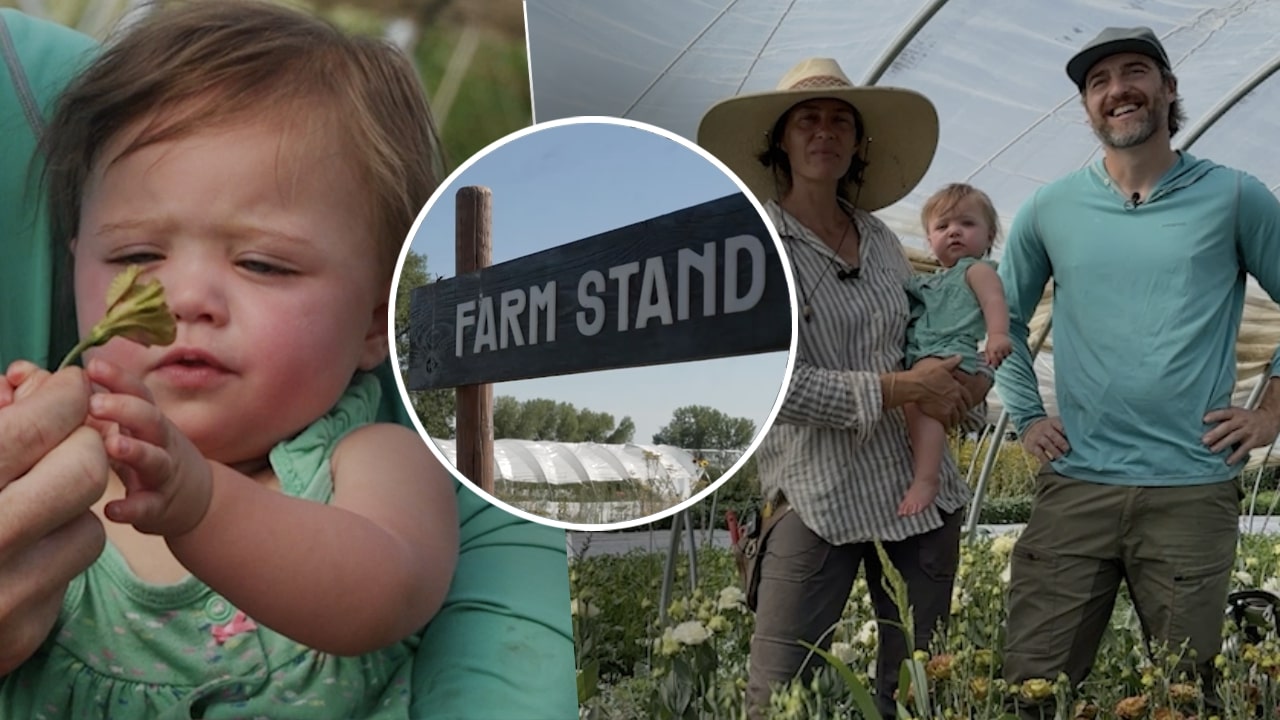LONGMONT, Colo. — The average age of a farmer in Colorado is 58. After some digging, Denver7 discovered that, according to the U.S. Department of Agriculture's 2022 census, over 17,000 farmers in Colorado are over the age of 65, while fewer than 5,000 are under 35.
This significant age gap suggests a need to support younger farmers to ensure their success as producers.
As a solution to this issue, the Flatiron Farmers Coalition — a nonprofit based in Boulder — has launched a program aimed at easing the transition for new farming families entering parenthood. By offering small grants and workshops, the coalition looks to help these families maintain their farming operations while navigating the challenges of parenthood.

At Artemis Flower Farm in Longmont, owners Helen Skiba and Nelson Esseveld represent the challenges faced by young farmers. Last August, they celebrated the birth of their daughter, Margot, and welcomed the joys and challenges that come with having a child. Helen took two months away from the farm after Margot’s birth—a critical period for the family’s only source of income.
"Our farm is taking a hit from us not being out here and doing all the things that we used to be able to do with the two of us," Helen said. "One of us is always with her."
The Boulder Valley Farming Families Fund, part of the Flatiron Farmers Coalition’s initiative, steps in to provide financial relief during this transitional period. According to Lauren Kelso, policy chair of the coalition, the funds are typically used to hire additional help, allowing families to take necessary time away from farming responsibilities.
"The goal is to make sure that these families feel like they can step away just a little bit to go through this transition," Kelso said.
The coalition's approach is community-driven, with funding largely coming from individual donors invested in local agriculture's sustainability. The program is designed to be flexible, offering stipends based on need and family circumstances. Farmers relying solely on farm income may receive grants ranging from $4,000 to $7,000 for the year.

"It’s an incredibly difficult career path, but it’s also a really rewarding one," Kelso said. "The whole point of programs like this is, how do we make this a career that people can survive in and, better yet thrive in?"
Skiba and Esseveld speak on the dual challenges of farm operations and parenthood. "It's not just that we're growing things; we also have to put them together and sell them," Helen explained. "There’s a whole other aspect of a farming business that maybe folks don’t think about."
Despite the challenges, the couple shares a passion for farming and a commitment to their community. "It’s amazing to be outside," Nelson said. "There’s something about flowers that we just can’t get away from; they provide so much beauty to the world."

Helen notes that the financial support they received from the coalition allowed the couple to feel secure, especially during an uncertain time following Margot’s premature birth. "It felt like we had a good boost," she said. "I think farmers deserve that chance—to not have to choose between having kids and farming."
As Colorado grapples with an aging farming population, initiatives like the Boulder Valley Farming Families Fund highlight the importance of community support in fostering the next generation of farmers. By alleviating some of the financial burdens during early parenthood.






